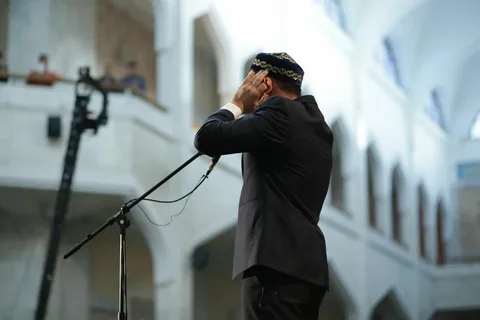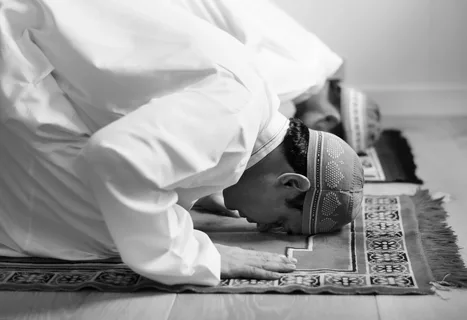One of the most common questions Muslims have, especially those praying at home, is about the precise timing of their prayers. A frequent query is: can I pray Fajr immediately after Adhan at home? This question touches upon the core principles of Salah (prayer) timings and the established Sunnah (prophetic tradition). This guide will provide a clear and comprehensive answer, helping you perform your prayers with confidence and according to Islamic teachings.
Understanding the Fajr Adhan and Its Purpose

The Fajr adhan is the beautiful call that echoes before dawn, announcing to the community that the time for the Fajr prayer has begun. It’s crucial to understand that the Adhan is an announcement of the *start of the permissible time window* for a prayer, not a command to start the prayer itself at that exact second. Its primary purpose is to awaken the believers and give them notice to prepare for Salah.
This preparation includes waking up, using the restroom, performing Wudu (ablution), and mentally preparing for the act of worship. Therefore, a natural gap between hearing the call and starting the prayer is inherently built into the system.
Timing of Fajr Prayer
Fajr prayer is performed at dawn, marking the beginning of the Islamic day. It is a crucial act of worship, with its timing defined by the appearance of the first light in the sky. Observing Fajr prayer at its designated time holds great merit in Islam, as it demonstrates obedience and submission to Allah’s commands.
The Recommended Interval: Why You Should Wait After the Azan
The practice of waiting for a period between the Adhan and the Iqamah (the second call to prayer that signals the immediate start of the congregational prayer) is a well-established Sunnah. So, when we ask, can we pray immediately after azan?, the prophetic tradition guides us toward patience.
The Sunnah of the Prophet (PBUH)
The Prophet Muhammad (peace be upon him) instructed his companions to leave a gap between the Adhan and the prayer. This was to allow people enough time to finish their needs and join the congregation without rushing. It is reported in a Hadith that the Prophet (PBUH) told Bilal, his Muezzin (caller to prayer):
“Make a pause between your Adhan and your Iqamah, long enough for a person eating to finish his meal, a person drinking to finish his drink, and one who needs to relieve himself to do so.” (Jami` at-Tirmidhi 195)
Although this Hadith is considered weak by some scholars, the principle it conveys is widely accepted and practiced. The established custom was always to have a waiting period, allowing the community to gather and prepare.
Practical Reasons for the Delay
Beyond following the Sunnah, there are several practical benefits to waiting:
- Time for Preparation: It provides a sufficient window to perform Wudu properly and with tranquility, which is a prerequisite for a valid prayer.
- Certainty of Time: Waiting a few minutes ensures that the prayer time has definitively entered. Prayer times are based on astronomical calculations, and a small buffer prevents the risk of starting the prayer even a second too early, which could invalidate it.
- Spiritual Readiness: The interval allows the heart and mind to transition from worldly matters to a state of Khushu (concentration and humility) required for prayer
Can i pray fajr immediately after adhan at home

Scholars have differing opinions regarding the permissibility of can i pray fajr immediately after adhan. Some argue that it is acceptable, especially in situations where there is a limited window of time between the Adhan and the actual break of dawn. However, others advocate for a brief delay to ensure the validity of the prayer and to allow time for necessary preparations.
Performing Fajr Prayer at Home
Praying Fajr at home is permissible under certain circumstances, such as illness or inability to reach the mosque. However, it is essential to observe the proper etiquettes and fulfill the conditions for individual prayer, including facing the Qiblah and maintaining ritual purity.
Respecting the Adhan
Regardless of whether one chooses to pray immediately after the Adhan or with a slight delay, it is imperative to show reverence to the call to prayer. Observing the recommended etiquettes, such as repeating the words of the Adhan and responding with supplications, reflects the believer’s respect for this sacred tradition.
Flexibility in Worship
Islam recognizes the importance of flexibility in worship, accommodating various circumstances and environments. While adhering to the prescribed guidelines is paramount, there is room for flexibility to accommodate practical considerations, ensuring that the spirit of worship remains intact.
How Long After Azan Can You Pray Fajr?
This brings us to another key question: how long after azan can you pray fajr? There is no universally fixed duration mandated in minutes. The interval varies from one mosque to another and from one region to another. Typically, the wait time between the Fajr Adhan and the Iqamah in a mosque is between 15 to 25 minutes.
When praying at home, you are not bound by a mosque’s specific schedule. However, adopting a “reasonable” wait time is the best practice. A wait of 10 to 15 minutes is generally considered a safe and virtuous interval. This gives you ample time to prepare and ensures you are well within the prescribed prayer window.
FAQs
Can I pray Fajr immediately after Adhan if I missed it earlier?
Scholars recommend making up missed prayers as soon as possible after realizing the omission. However, it is advisable to perform the prayer within its prescribed time frame.
Is it better to pray Fajr at home or in the mosque?
While congregational prayer holds great merit, praying at home is permissible under certain circumstances. Both options are valid, and the decision should be based on individual circumstances and accessibility to the mosque.
What if I cannot hear the Adhan at home?
In cases where the Adhan cannot be heard at home, one can rely on alternative methods to determine prayer times, such as using prayer timetables or electronic devices.
Can I combine Fajr prayer with other prayers?
Combining prayers is permissible in specific situations, such as travel or illness, based on the teachings of Islam. However, it is generally recommended to perform each prayer within its designated time frame.
How can I ensure I wake up for Fajr on time?
Establishing a consistent sleep schedule, seeking Allah's help through supplication, and using alarm clocks or other reminders can help ensure timely waking for Fajr prayer.
Conclusion
In conclusion, while you are not forbidden from praying immediately after the Fajr adhan, the most virtuous and recommended practice is to wait for a short interval. This aligns with the Sunnah, provides practical benefits, and fosters a deeper spiritual connection.
So, to the question “can I pray fajr immediately after adhan at home?”, the best answer is to embrace a brief pause. When you hear the call, use the next 10-15 minutes to perform Wudu, find your prayer spot, and calm your mind. This addresses the question of how long after azan can you pray fajr in a practical way for those at home. By doing so, you ensure your act of worship is not just valid, but performed in the best possible manner, earning you greater rewards. The question of “can we pray immediately after azan” is less about permission and more about pursuing excellence in our worship.

